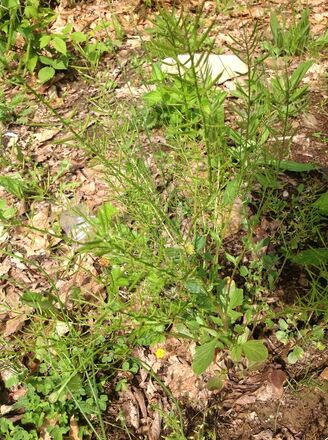 Not long ago on Shabbat we listened to an amazing lesson taught on faith and the things that stand in the way of building our faith. During the teaching something truly struck me as being a major stumbling block for some, and I felt it important to share with Torah for Women. Hebrews 12:15 looking carefully lest there be any man who falls short of the grace of God; lest any root of bitterness springing up trouble you, and many be defiled by it; “Any root of bitterness”. This reminded me of that horrible weed in your garden. You know the one - you think you got all the root, but all it takes is the tiniest little piece left behind, a little rain, some sunshine and POP! There it is - another brand new weed trying to take over the garden by choking out all the good plants. Just a little root and the right conditions and it becomes invasive, toxic, strangling. The sad thing, too, is that it seems to grow much hardier and much faster than anything else in the garden does. If we don’t pull it out quickly, when it is first noticeable, then it will have the time to grow too many side roots to get them all. Then more roots will sprout new weeds, creating a vicious cycle. Better to pluck it up quickly when it is small, before it has time to develop a bigger root system. Now apply that to the feeling of bitterness: Everyone at some point in life has a conflict with another person and sometimes we believe that we have fully forgiven them. Yet there can be a twinge of bitterness leftover, hidden deep inside, like those small roots. It lurks there until something happens to create the right conditions and then it creeps into our hearts. This often happens when we either have contact with that person again or when a similar situation to the one that hurt us pops up in our lives. It is that last little piece of leftover root just waiting for the right fertilizer and amount of rain to come along so that it can spring up and grow again. This is the root of bitterness. If we aren’t careful to pluck it out immediately, too, just like the new weed in the garden, it will grow quickly and very hardy, making it difficult to move forward in forgiveness, in developing faith, or in other spiritual matters that we have been working on. It is important that we learn to recognize these roots quickly so that as warned in Hebrews, “many” are not defiled by our bitterness. And remember: Let all bitterness, wrath, anger, outcry, and slander, be put away from you, with all malice. And be kind to one another, tenderhearted, forgiving each other, just as God also in Christ forgave you. Ephesians 4:31-32 WEB Blessings and Shalom! (This post was originally published on Torah For Women Facebook page, December 9, 2016) Audio Blog Now AvailableBitter Root Part One
Comments are closed.
|
Searching for Something?NOTE: Comments may be closed on most posts. In lieu of comments we asked that you use our contact form, or contact us by social media.
Partner with our work with a donation of $10 or more to help spread our message of truth and hope for all women. Thank you.
Lead Author (Bio)Yehudit (Judith) Associate Author
Jim, (Judi's husband), has Sephardi Jewish ancestry and is a minister and head of Shofar Productions. Jim was a denominational pastor, hospital chaplain, and former director of a non-profit community organization. Archives
July 2022
Categories |
Services |
Ministry
|
|
|
Compensation Disclosure: We participate in affiliate programs and are compensated. Therefore, if any reviews are given on this site they should not be considered unbiased reviews or an unbiased endorsement. Your purchase helps support our work so we will actively market and suggest products we are compensated for. We do are best to find trusted companies to affiliate with, but you are required to do your own due-diligence with any product or service prior to purchasing. We are not responsible for third-party actions, inaction, promises, guarantees, delivery, payment processing, or handling of your information, or after-sale service or support. Use of this site is your agreement to all the terms posted here or linked.
|
Scripture use: Whenever possible we will use the following Public Domain versions; the King James (KJV), Youngs Literal Translation (YLT), or World English Bible (WEB) versions. However, for greater clarity we may use other copyright versions of the scriptures by permission or under fair use. Click Here to see copyright information and statements for each version.
|


 RSS Feed
RSS Feed